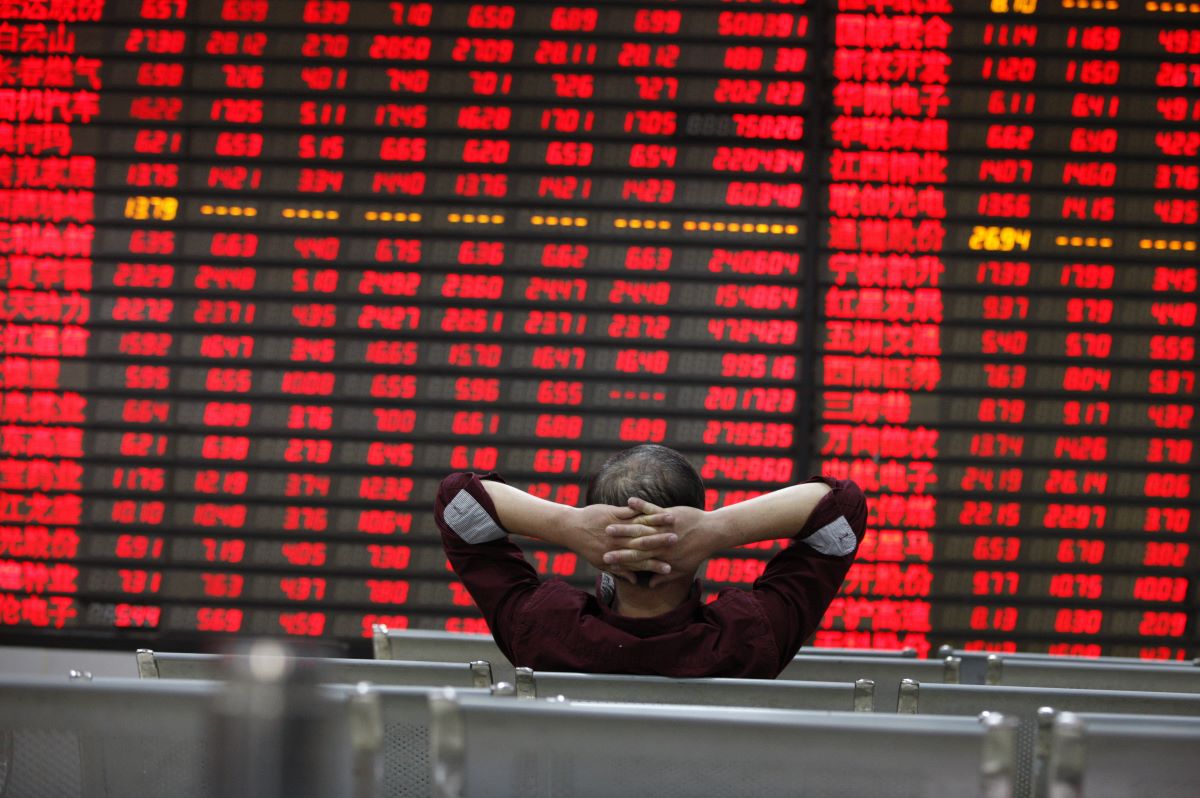Chinese stock markets are going through a tumultuous phase as the CSI300, China’s blue-chip index, touched its lowest level in 5 years on January 15. Besides, Chinese and Hong Kong stocks lost more than $6 tn in market value since the beginning of 2021.
Domestic and foreign investors are pulling their money out of the market. Research by the Financial Times shows that 90% of the foreign funds invested into the Chinese stock market in 2023, which is approximately $33 bn, has already been withdrawn.
“Snowball” derivatives spike a risk of massive selloff
One reason that led to China’s stock market avalanche is the so-called “snowballs”. They are structured derivatives sold in China. Snowballs are linked to the performance of an underlying index and offer bond-like coupons as long as the index remains within a certain range.
There are two scenarios, the “knock-out” and the “knock-in”. The former occurs when the index rises above the upper end of the range, then the contract ends and the investor receives the coupon for the previous period. The “knock-in”, on the other hand, occurs if the index falls below the lower end of the range. In this case, the investor receives no coupon and may lose part or all of the invested capital.
The recent plunge of the stock markets in Hong Kong and in mainland China already triggered “knock-in” levels, market participants said. Furthermore, more snowball-induced major selloffs are expected in the future.
Several snowball products tracking the small-cap CSI 500 Index and the CSI 1000 Index had already breached the pre-decided levels, market analysts say. The Bank of America estimates a further 6% to 7% decline in the CSI 500 or CSI 1000 indexes will trigger another round of “knock-ins”.
Snowballs became popular in recent years when the pandemic-led weakness compelled brokerages and investors to explore volatility-beating innovative structured products. They typically offer annualized returns of between 12% to 20%.
However, the sector remains loosely regulated even after the China Securities Regulatory Commission (CSRC) advised brokers to increase their risk controls on snowballs and avoid falsely marketing them as fixed-income products.
Beijing pumps in liquidity to boost the financial market
Authorities are visibly worried about the free fall in the Chinese stock market and are trying to take measures to revive confidence.
Chinese Premier Li Qiang instructed officials to take “forceful and effective measures” for market stabilisation. According to the state media, CCTV, Beijing plans to pump in mid and long-term capital into the market to strengthen its “internal stability”. According to people familiar with the matter, policymakers want to mobilize a package worth more than 2 tn yuan ($278 bn).
Rajeev De Mello, global macro portfolio manager at GAMA Asset Management told Bloomberg that the package might help but could be very short-lived. “Without more forceful economic and regulatory policy actions, it will not lead to the beginning of a bull market in China.”
David Huang, senior investment strategist at AllianceBernstein, drew the parallel to the 2008 financial crisis at a recent press briefing, when similar products were sold betting against US equities. “And it turned out, what you think wouldn’t happen, ended up happening. This also shows that A-shares may indeed be on their last round of falls,” Huang said.


 Australia
Australia China
China India
India Indonesia
Indonesia Japan
Japan Malaysia
Malaysia Philippines
Philippines Singapore
Singapore South Korea
South Korea Taiwan
Taiwan Thailand
Thailand Vietnam
Vietnam







